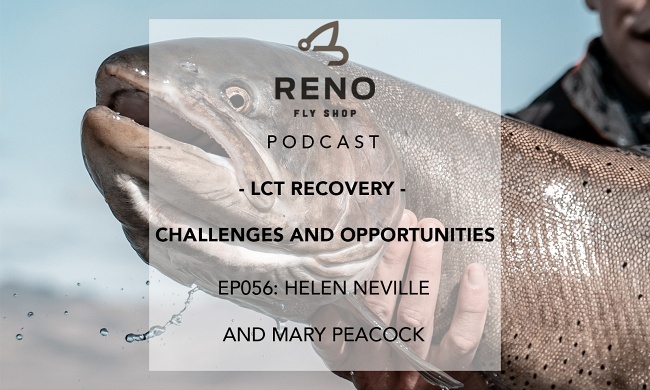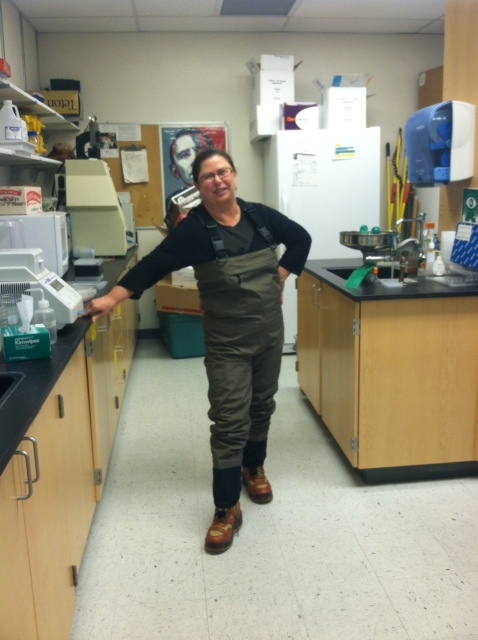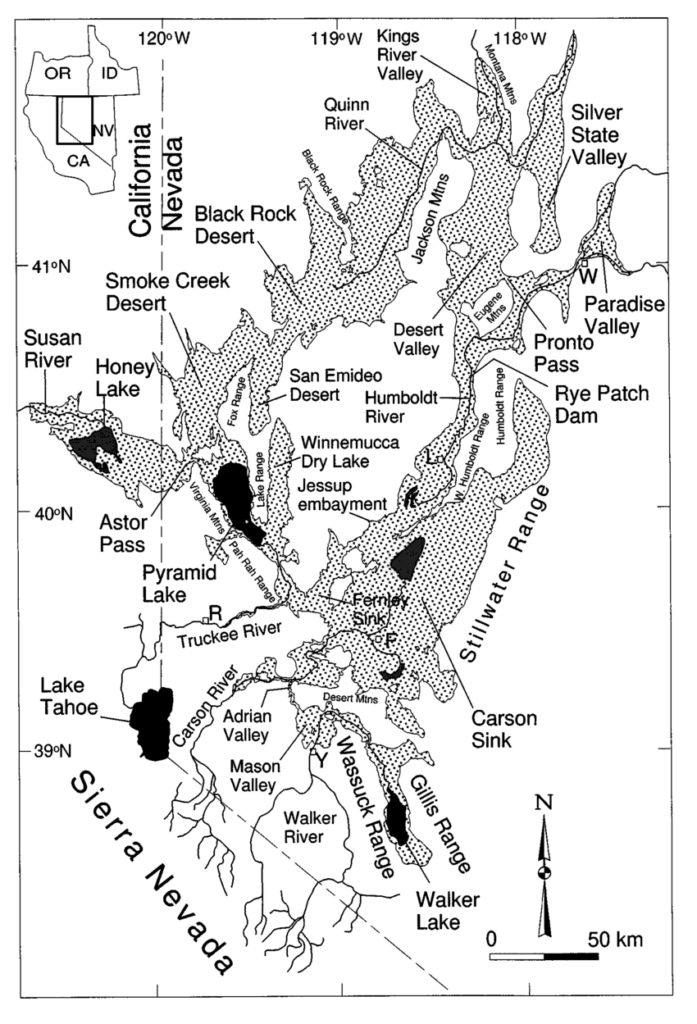From Sportfishing
Fish Report for 10-16-2020

Helen Neville and Mary Peacock - LCT Recovery -Challenges and Opportunities
10-16-2020
Reno Fly Shop
Episode 56: Helen Neville and Mary Peacock - LCT Recovery -Challenges and Opportunities
Dr. Helen Neville, Senior Scientist with Trout Unlimited, and Dr. Mary Peacock, professor of Biology at the University of Nevada, Reno, have been instrumental in the efforts to protect and recover the Lahontan Cutthroat Trout to its historic range. While both specialize in the genetic sequencing of LCT, Helen’s and Mary’s research have differed in that their recent focus has been on the stream form and lake form, respectively.
Much of our conversation focuses on the Truckee River watershed and the complex issues that must be considered in the recovery of the LCT in a significantly altered landscape. This recording covers some challenging topics that are difficult to unpack. One thing that is agreed upon is that humans have significantly altered the landscape within the Truckee River watershed from its headwaters in the Sierra Nevada to the terminus in Pyramid Lake. Altered to a degree that is not recoverable.
These issues are tough, complex and, at times, emotionally charged. We discuss several of the issues and some of the management scenarios the U.S. Fish and Wildlife Service are considering for the Truckee River. While nothing has been formally proposed or planned for implementation it is important that we stay informed and involved in the process to contribute to what the Truckee River will look like in the future.
Enjoy this very informative conversation with Helen and Mary.
Dr. Helen Neville, PhD., has been with Trout Unlimited since 2006, mostly recently as TU’s Senior Scientist. She received her undergraduate degree in Biology from Brown University, a Master’s degree in Ecology, Behavior and Evolution from the University of California, San Diego, and her Ph.D. in Ecology, Evolution and Conservation Biology from the University of Nevada, Reno. She specializes in applying genetic tools to improve our understanding of the ecology and conservation needs of salmon and trout. She fell in love with Lahontan cutthroat trout when she had a wonderful opportunity to study them in the Marys River in eastern NV for her dissertation two decades ago, and has since maintained a focus on providing science to inform the conservation of this amazing trout.
Dr. Mary Peacock, PhD., is a Professor in the Department of Biology at the University of Nevada, Reno. Her field of research is Conservation Biology specifically Conservation Genetics primarily on desert fishes, but students and she also work on pikas, plants and amphibians. Conservation Genetics uses molecular genetic markers and techniques to identify and track individuals across space and time and examines the impact of human land use on persistence and viability of wild populations. Mary has a large research program on the federally listed Lahontan cutthroat trout that she has been working on since 1995. Her laboratory is involved in the genetic monitoring of wild populations as well as the Pilot Peak strain that is currently being raised at the USFWS Lahontan National Fish Hatchery. The Pilot Peak strain was native to Pyramid Lake and Lake Tahoe prior to the loss of these populations in the 1940s, but was rediscovered and brought into hatchery production for restoration into its historic lake habitat.
Research by Helen Neville and Mary Peacock
The Lahontan Basin Evolutionary Lineage of Cutthroat Trout
Monitoring Demographic and Genetic Responses of a Threatened Inland Trout to Habitat Reconnection
Photos
< Previous Report Next Report >
More Reports
Reno Fly Shop Reports
for Friday, October 9th, 2020
Truckee River: Flows Have Been Bouncing Around A Bit
• Truckee River and area Stillwaters |Early October 2020
Reno Fly Shop Reports
for Thursday, September 24th, 2020
Truckee River: We Can't Ask For Better Fishing Conditions!
• Truckee River and area Stillwaters | Late September 2020

Website Hosting and Design provided by TECK.net


